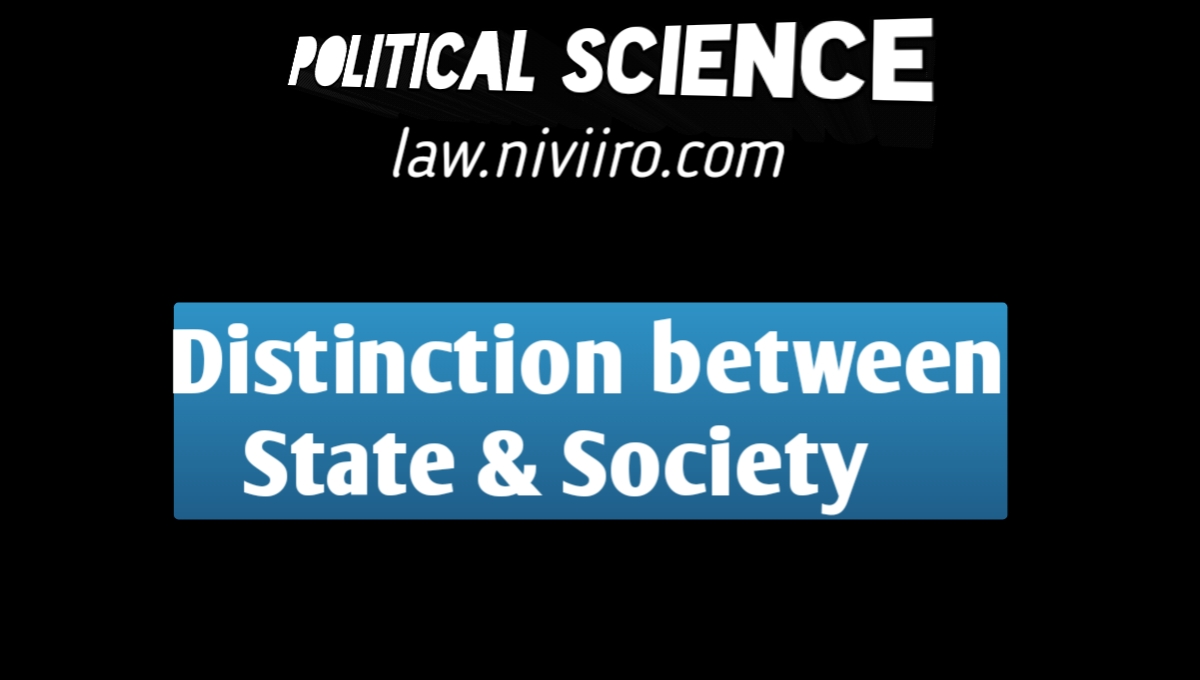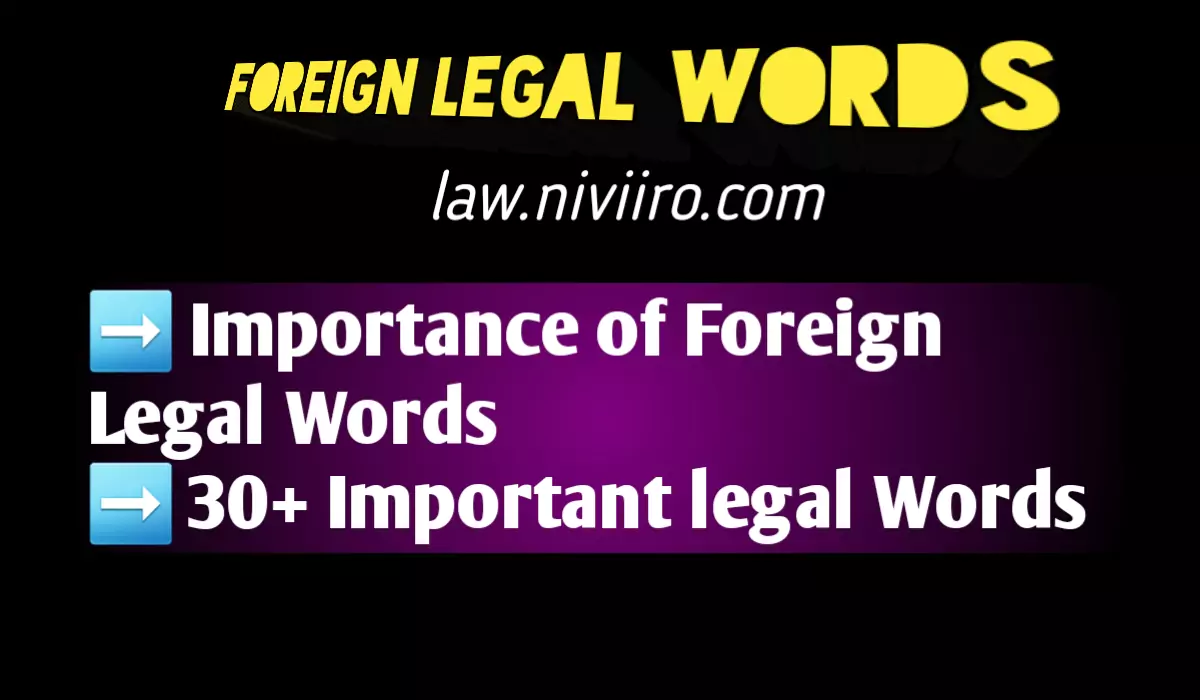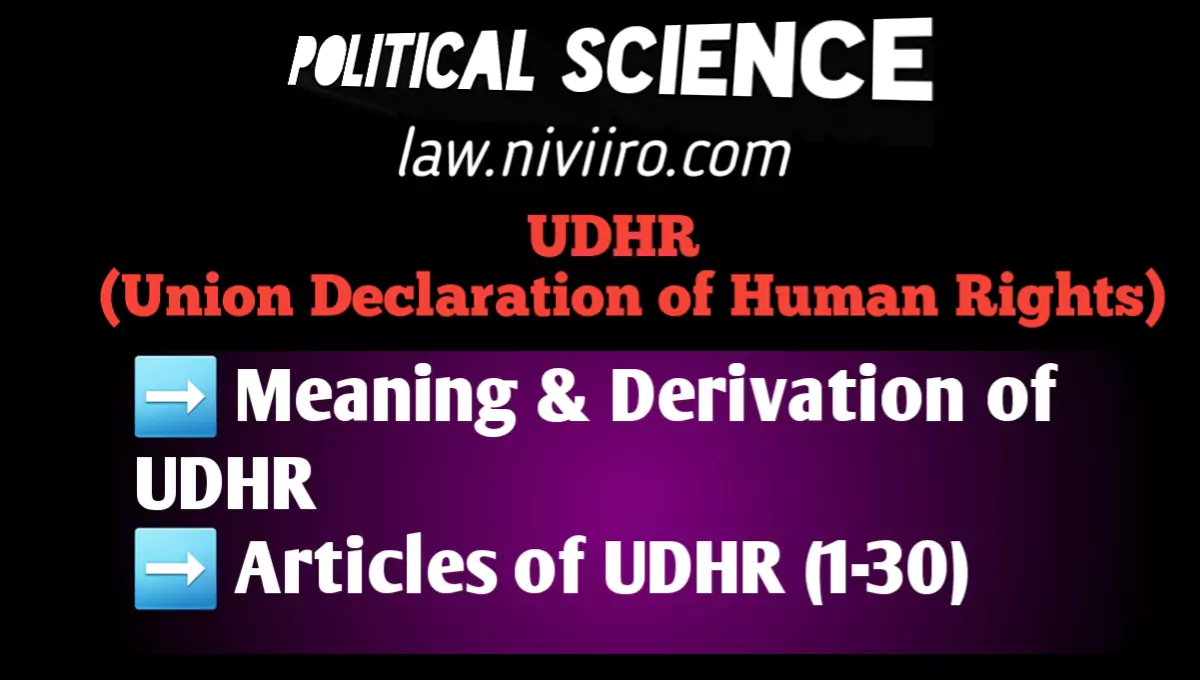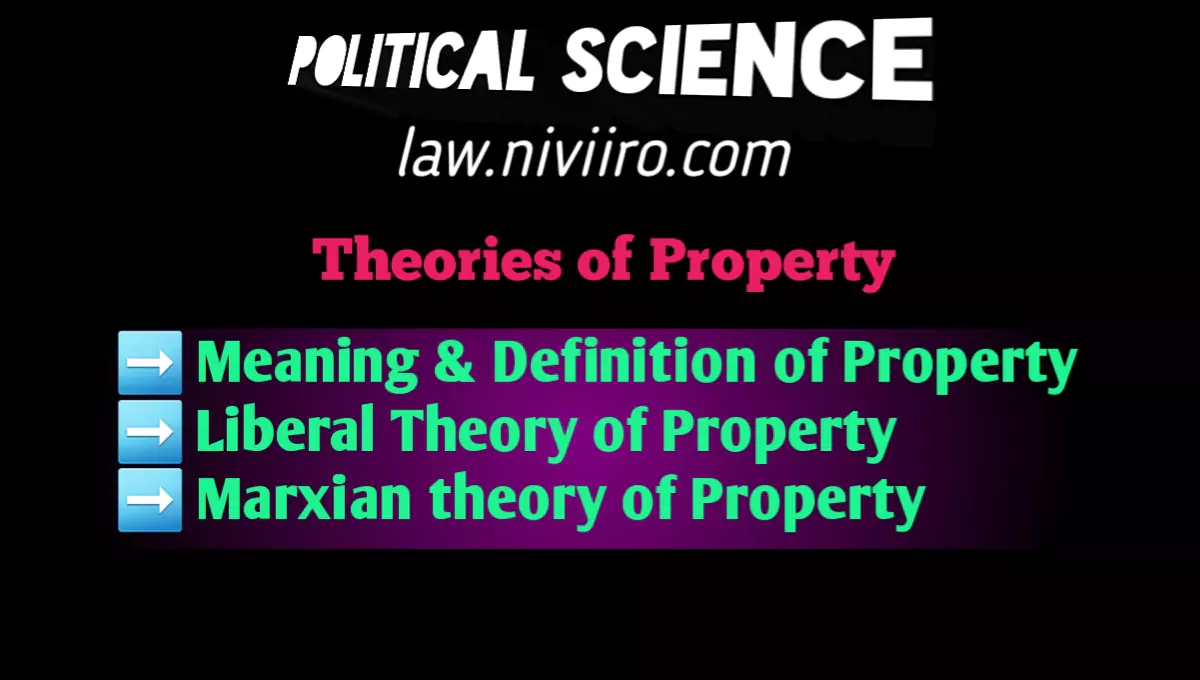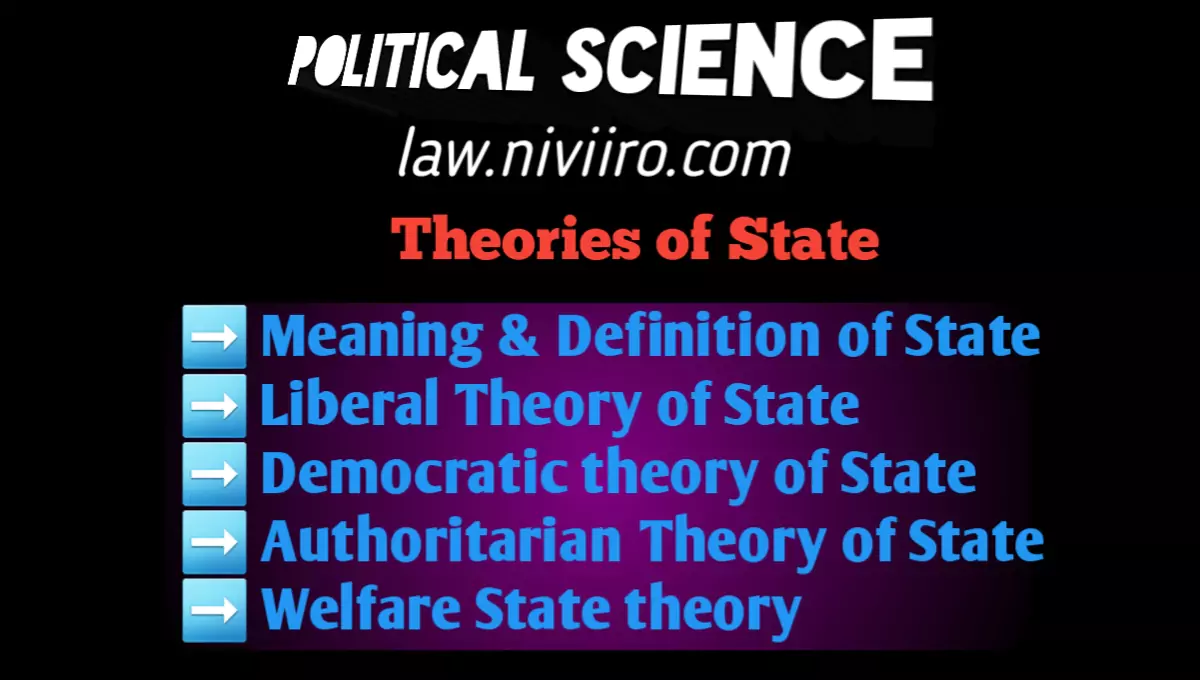Distinction between State and Society, The terms society and state have frequently been used interchangeably. Aristotle, for example, recognised no distinction between the State and society. As a result, the Greek city-states were said to coexist with society. These two terms “society and state” are frequently used interchangeably, yet they differ in several ways. The State is a political organisation, whereas society is a social organisation. “By society,” says Laski, “I mean a group of human beings living together for the satisfaction of their mutual wants.”
In this regard, Maclver has very accurately stated, “To identify the social with the political is to be guilty of the grossest of all confusions, which completely bars any understanding of either society or State.” According to Leacock, the term “society” refers to “not only the political relations that tie men together, but the whole range of human relations and collective activities.”
As a result, it is evident that society and states are distinct organisations. Their modes and structures are distinct.
The following are the primary distinctions between the State and society :
State indicates political and Society Indicates social system
As previously stated, the state is a political organisation, whereas society is a social organisation. The state is concerned with the political order, while society is concerned with the social order. The people who live in a socially structured institution of human beings are referred to as society, whereas the politically organised people are referred to as the state. State refers to a political system, whereas society refers to a social system. The state’s origins can be traced back to the tribe, which was the first political institution. In contrast, the genesis of society may be traced back to the family, which is considered the first social institution.
The main distinguishing feature of the State is that its authority makes instructions and its people carry them out. This was also a defining attribute of the tribe. The tribe’s chief would issue the command, and others would carry it out. Because every state has a government, the state is a political institution, and society is an extension of the family.
State possess Sovereignty but the Society does not | Distinction between State and Society
Every state possesses sovereignty, whereas society does not. The state has absolute power over its territory. It has the ability to impose its decisions on its people and employ force to ensure that its directives are followed out. However, society lacks such authority. The State has the authority to punish anyone who violates the laws of the State. However, if someone breaks society’s laws, society cannot penalise him. The only punishment it can administer to him is a social boycott. The state uses its Police, Army, and Court of Law to carry out its collective will. However, society lacks such authority.
Professor Barker has stated this truth quite well by saying. “The area of the society is voluntary co-operation, its energy is that of goodwill and its method is elasticity; while the area of the other is rather that of mechanical action, its energy is force and its method rigidity”.
State controls our external relations and society influences our inner motives
The state attempts to manage its citizens’ external contacts through the use of law enforced by government agencies. It establishes property rights. If a citizen causes injury to another citizen, the government punishes him using laws, but society lacks such laws. The only thing it can do is motivate us to avoid sin and accomplish good.
Maclver has made an excellent point in this regard, “It is perfectly obvious if only we look at the facts of the case that there are social forms like the family or the church or the club which own neither their origin nor their inspiration to the State and social force like custom or competition, which the State may protect or modify but certainly does not create and social motives like friendship or jealousy which establish relationship too intimate and personal to be controlled by the great engine of the State”.
Society is prior to state | Distinction between State and Society
It is now commonly understood that society comes before the state. Before the political organisation of the State, there was society. Society existed even when humans were not socially organised and roamed from place to place in tribes. As time passed, society became more ordered, and people began to become civilised. People learned to cultivate and recognised the need for a property-organized political institution-the State. The state was formed in this manner. The family is a social institution that existed long before the state. In this regard, Maclver has very aptly stated, “Society precedes the State just as it precedes the family, the church, the corporation, the political party. It unites all these as the tree unites its branches”
Society is wider than the State | Distinction between State and Society
From a structural viewpoint, Society and State are distinct. Society is larger than the State; it encompasses all human organisations, including the State. According to Maclver, ” the State exists inside society but is not the form of society. It supports or exploits, curbs or liberates, fulfils or even destroys the social life over which it is invested with control-but the instrument is not life”. Society is concerned with several areas of human life such as social, political, cultural, religious, economic, and normalcy, among others. Society seeks to improve man’s well-being, but the State is primarily concerned with the political aspects of human life.
The state is less concerned with the social aspects of human life than society is. More than the State, society seeks to eliminate ills from society. For example, in our country, social reformers first attempted everything they could to eliminate problems from society, and then the state enacted laws to curb and root them out. First and primarily, social reforms addressed social ills such as illiteracy, underage marriages, drunkenness, the dowry system, and so on. The government then enacted legislation to combat these ills. The State participates little or not at all in human religious concerns, whereas society is actively involved in these affairs.
Territory is the essential basis of the State but not of Society
Fixed territory is a necessary component of the State. There can be no State without land. The State has absolute power over the individuals who live on its territory. Society, on the other hand, does not require geography as a fundamental ingredient because it can be national or worldwide. The State is always wary of its territorial integrity, whereas society is unconcerned about its territory.
Organization is essential for the State but not for Society
Society can be both organised or unorganised. Society existed before the start of the State, when men lived in families and tribes, and even before the dawn of the State, when they wandered from one place to another. First and foremost, the state or government organised society. The government state cannot exist without social organisation. The foundation of the government resulted in the formation of the state.
Related Post
What are the differences between State and Society ?
The following are the primary distinctions between the State and society :
State indicates political and Society Indicates social system, State possess Sovereignty but the Society does not,Society is prior to state
References
- R.C. Agarwal, Political Theory
- M.P. Jain, Political Theory liberal and Marxiam
- Prof. H.C. Verma, Modern Political Theory
- V.D. Mahajan, Political Theory
- J.C. Johari, Political Science
- Prof. S.L. Verma, Modern Political Theory













